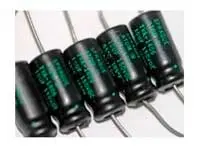 A new type of supercapacitor material developed at the University of Amsterdam is said to have potential applications in electronics, transportation and energy storage devices.
A new type of supercapacitor material developed at the University of Amsterdam is said to have potential applications in electronics, transportation and energy storage devices.
Dr David Eisenberg and Professor Gadi Rothenberg of the University’s Van ‘t Hoff Institute for Molecular Sciences discovered the material during work on a fuel cells project. Originally, the materials were developed as solid catalytic electrodes, but by modifying the surface of these materials, the scientists created a porous compound suited for use in supercapacitors.
The material is said to be light, cheap and non toxic and can be prepared easily on a large scale. Dr Eisenberg noted: “Companies making electronic devices look for low-cost, highly reproducible materials with a low environmental impact. The literature abounds with reports of high-performance electronic materials, but these will only be applied if they can be made cheaply in large quantities.”
Supercapacitors combine the properties of capacitors and batteries. Batteries can store large amounts of energy, but their power density is low. Conversely, capacitors enjoy a high power density, but their energy density is low. And, while a battery uses its whole bulk for charge storage, a capacitor uses its surface. Supercapacitors have a higher energy density than regular electrolytic capacitors and a higher power density than batteries.
Typically, supercapacitors are used when many rapid charge/discharge cycles are required, such as in protecting electronic circuits against power surges and regenerative braking in cars.
Author
Graham Pitcher
Source: www.newelectronics.co.uk

